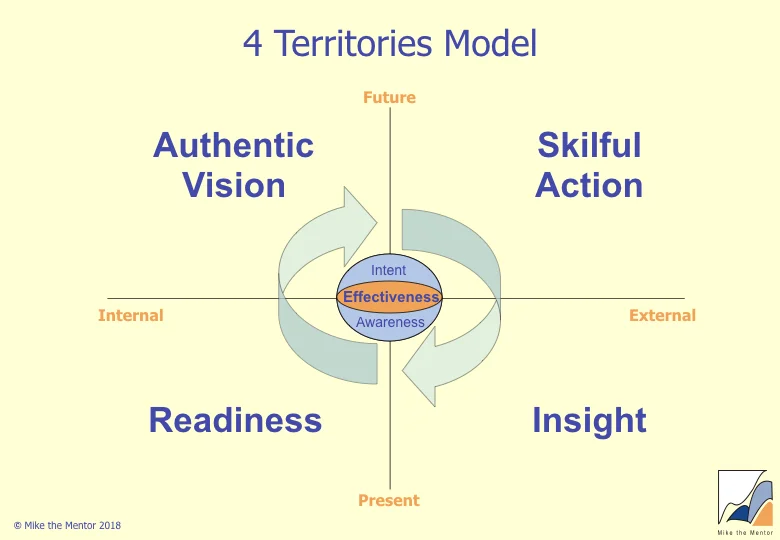Meaning-making - a powerful tool for change
/Changing ourselves (ie, changing our behaviour, beliefs, thoughts, etc) or coaching others to change can be difficult. This is hardly surprising. Most of the time it makes sense to respond to similar situations in exactly the same was as we have in the past. The alternative would be to treat every situation as without precedent and respond to it as if for the first time. Our flexibility and creativity would be huge but it would take us most of the day to get out of bed!
We thus have powerful internal mechanisms to ensure that we behave consistently and do not easily change. These mechanisms include, for example, the anxiety or fear that often comes with doing something new. This emotion may be appropriate and helpful if what we are doing might threaten our safety or survival - it is less appropriate if all that is at stake is our pride.
Such forces for predictability also exist at the social level. Our ability to work together and form social groupings requires that we are not forever meeting each other as if for the first time. We expect that when we see someone again they will be and behave much the same as when we last saw them.
Going against such pressures to create change requires an act of Will; making and acting on a choice. One way of doing this is through will power (Strong Will) - this can work but it can also take a lot of energy to sustain as anyone who has tried to change an ingrained behaviour knows.
However, there is another way to change and that is to use the Skilful Will. (These ideas on the Will are drawn from Roberto Assagioli's writings, in particular his book The Act of Will: A Guide to Self-actualisation and Self-realisation and form a central theme of Psychosynthesis, the psychology he created.) Applying the Skilful Will involves redirecting the forces that resist change so that instead they cause the change. A primary way to do this is to alter the meaning of what you are experiencing.
A personal example will make this clearer. I used to be a moderate smoker and for several years tried to give up. I was motivated to do so - I knew that it was harming my health, particularly in winter when I got chesty coughs I couldn't shake off, and that it was probably shortening my life. I was also becoming increasingly embarrassed that I lacked the ability to kick the habit. So, sustained by this motivation, I would decide to stop smoking.
I would then spend the next days and weeks trying to resist the urge to have a cigarette but the physical and psychological urge to smoke eventually always overcame my motivation and sooner or later I would start smoking again. Essentially, I was relying on Strong Will to stop smoking - and I was failing.
Then, a few years ago, inspired both by the idea of the Skilful Will and by some of the NLP work on Reframing, I took a different approach. In trying to stop smoking, what was always my undoing was the strength of the feeling of wanting a cigarette. So I decided to change the meaning of this experience so that it would become the reason why I was not smoking rather than the reason I did.
I spent time noticing as precisely as I could what exactly the experience was that "told" me I wanted a cigarette. Essentially, it was an empty feeling centred on my solar plexus which I associated with feeling anxious and tense. However, as I focussed on just the experience itself (rather than the overlay of meaning I was placing on it) I realised that the experience itself was not altogether unpleasant, and was one I could live with. But it was in changing the meaning of the experience that the real difference was made. By choosing to experience this emptiness more as a vacuum which was pulling out the toxins from my body that I had inhaled, the experience stopped being negative. Indeed, it became a reminder of the benefits I was gaining from not smoking and that my body was being cleansed. It was also a reminder to me of my sense of personal power in giving up my addiction. I haven't smoked since.
This example relates to a specific behaviour but the principle applies to almost any change we wish to make - and that is if we can find a way to make the direct experience of the change positive, then the change will come easily.

